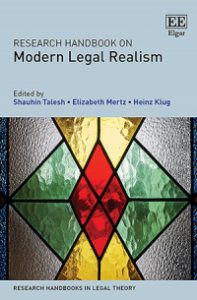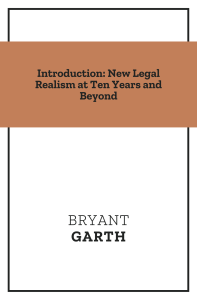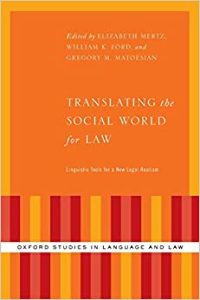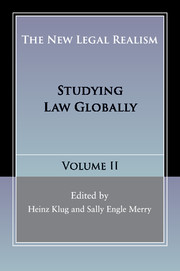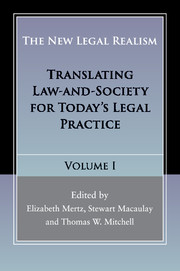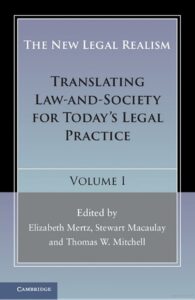The University of California, Irvine School of Law is now the main academic sponsor of the New Legal Realism project, proudly co-sponsored by the ABF.
The New Legal Realism (NLR) Project’s goal is to develop rigorous, genuinely interdisciplinary approaches to the empirical study of law. Too often, scholars and policymakers have assumed that we can simply pick up the findings of social science and use them in legal settings. This assumption of transparency does not take account of the vast differences that characterize diverse disciplines. NLR scholars have developed a variety of approaches to create improved, systematic approaches to interdisciplinary translation. Initially sponsored by the American Bar Foundation and the University of Wisconsin—Madison Law School, NLR events and conversations have expanded to include scholars from many institutions in the US and internationally.
Translating Social Science and Law
In recent years, legal academics have shown renewed interest in social science. However, to date there has been no organized paradigm within the legal academy for translating and integrating diverse social science disciplines and methodologies. NLR scholarship pays systematic attention to this process of translation and integration. Like the “old” legal realists, we seek to bring the best of current social science and legal scholarship to bear on important policy issues of our day – but with the benefit of several generations of new knowledge. NLR scholarship has been featured in panels held at the annual meetings of the American Association of Law Schools and the Law & Society Association. NLR scholars have formed a Collaborative Research Network (CRN) titled “Realist and Empirical Legal Methods” under the aegis of the Law & Society Association, which sponsors panels at their annual meetings. Many of these panels have centered on developing rigorous empirical legal research methods.
Too often, scholars and policymakers have assumed that we can simply pick up the findings of social science and use them in legal settings. This assumption of transparency does not take account of the vast differences that characterize diverse disciplines. These differences exist even among the social sciences themselves. The NLR Project draws on existing research about the process of interdisciplinary translation to formulate a more rigorous and informed framework for the interdisciplinary study of law. This will have implications not only for scholarly debates, but also for the use of social science in policy arenas and in legal education.
The ABF co-sponsored the NLR 10-year anniversary conference with the University of California, Irvine School of Law and continues to participate in NLR projects and events. In 2021, numerous ABF and ABF-affiliated scholars contributed to the signal NLR publication, Research Handbook on Modern Legal Realism (Edward Elgar Publishing, 2021).
The ABF will co-sponsor the 20th anniversary NLR gathering at the Center on the Legal Profession at Harvard University, titled “Widening the Lens of Justice: A New Legal Realism Conference on Legal Education”. This gathering will continue building the network of social science scholars studying legal education and aim to highlight the perspectives of professors from traditionally underrepresented groups. Scholars will present papers examining how the burgeoning social science research on race and inclusion in legal education speaks to the current situation in American law schools, which are now struggling with those very issues. Some of the conference papers will be published in a Handbook of Legal Education Research, commissioned by Routledge.
Click here to read about the history of New Legal Realism and the ABF
For additional content, visit the New Legal Realism website.


